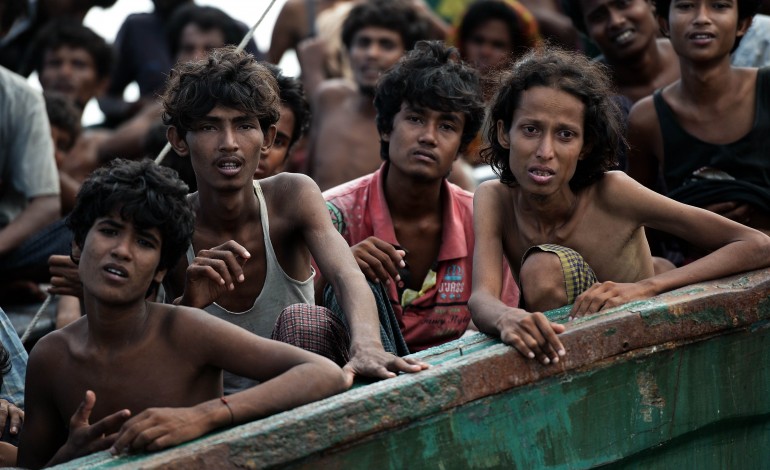Do Not Forget About Human Rights Challenges In Myanmar: UN

NEW DELHI: The United Nations Special Rapporteur on human rights in Myanmar, Yanghee Lee, called upon the international community this week to not forget about ongoing human rights challenges in the country, including continued detention of political prisoners, the constitutional guarantee of 25 per cent of seats in Parliament to the military, and increasing unrest and discrimination against Muslim communities.
In a briefing to the Third Committee of the UN General Assembly, which handles social and humanitarian affairs as well as human rights issues, she praised recent progress but urged stakeholders to remember that much remains to be done.
“The international community has a responsibility to continue to encourage the changes needed to ensure that everyone in Myanmar can access their fundamental human rights – regardless of their race, religion, ethnicity, socio-economic status or location,” Lee said.
Civilians and children continue to suffer amid the escalating conflict in Shan, Kachin and Kayin states, and humanitarian access to these locations is more difficult than it has been in recent years. Meanwhile, in Rakhine state, the continued discrimination against the Rohingya and other Muslim communities has affected peoples’ fundamental rights. She pressed for the removal of all discriminatory orders, policies, and practices, she noted.
The expert expressed alarm over other developments in Rakhine state, including the murder of nine police officers on 9 October. The resulting security operations led to multiple allegations of serious human rights violations, including torture and ill-treatment during interrogations, summary executions, arbitrary arrest and the destruction of mosques and houses in Muslim villages.
Some 3,000 people from the Rakhine community and up to 12,000 Muslims have fled their homes.
“I am also extremely concerned that humanitarian programmes providing health, food, education, and nutrition assistance have been suspended and access by humanitarian and other groups has not be granted,” Lee remarked.
The statement comes as Rohingyas -- described by the UN as one of the most persecuted minorities in the world -- find themselves in the centre of a political controversy once again. The country’s leader, known ironically for her pro-democracy stance, Aung San Suu Kyi told the U.N. Special Rapporteur on Human Rights recently that the government will avoid using the term "Rohingya" to describe the minority community. The stance was reiterated by Myanmar's military-backed opposition, who also refused to accept the ethnonym "Rohingya," instead using "Bengali" to describe the community.
Rohingyas identify themselves by that name, as the connotation of the word “Bengali” is that of a foreigner -- enabling the Myanmar government to deprive the community of basic rights on the basis of them being outsiders. Rohingya, however, have lived in Myanmar for generations.
Some 140,000 Rohingya remain displaced in squalid camps since fighting erupted in Rakhine State between Buddhists and Muslims in 2012. The conditions and violence have forced them to leave -- making the treacherous and dangerous journey by sea to countries that often close their borders and restrict entry. Last year, for a brief period, the Rohingya claimed international attention as several boats carrying members of the group who were fleeing their home country were stranded at sea, being denied entry from destination countries such as Thailand, Indonesia and Malaysia.
The voyage, however, is a yearly occurrence -- as large numbers of the minority community make the treacherous journey in hope of a better life. Every year, several die trying to make the journey, with the media barely reporting these casualties.
In addition to the lack of international support and attention, the Rohingya continue to be persecuted against in their home country. The conditions are so bad that around 300 000 Rohingya are in need of humanitarian aid, including 140 000 still living in camps meant to be temporary, according to the UN Office for the Coordination of Humanitarian Affairs. Despite the change in government -- where a democratic government led by Aung Saan Suu Kyi has finally ended the military’s categorical dominance -- the Rohingyas plight remains just as miserable. In fact, the National League for Democracy (NLD) has remained virtually silent on the issue of the Rohingya -- prompting a UN official to recently warn that Myanmar’s Rohingya minority risked being forgotten in the afterglow of the recent elections, a process they were not part of.
Additionally, Lee welcomed the release of 200 prisoners by the new government, but expressed concern for the remaining 200 still in detention. Both Lee and her predecessors have advocated for legal reform, but many people continue to be arrested under outdated laws, even under the new Government.
She also pointed to Myanmar’s constitution, for which 25 per cent of seats in Parliament and three key ministerial posts are reserved for the military: “Until there is constitutional reform, there is still much to be done for Myanmar to evolve from having a military government to a civilian one,” she said.
“Peace will be a pre-requisite for the long-term progress of Myanmar,” she added, referring to the talks between the Government and armed groups at the Panglong Conference which was held in August of this year. “Unfortunately, on the ground, peace still feels remote and communities still fear attacks, abductions, and abuses.”



